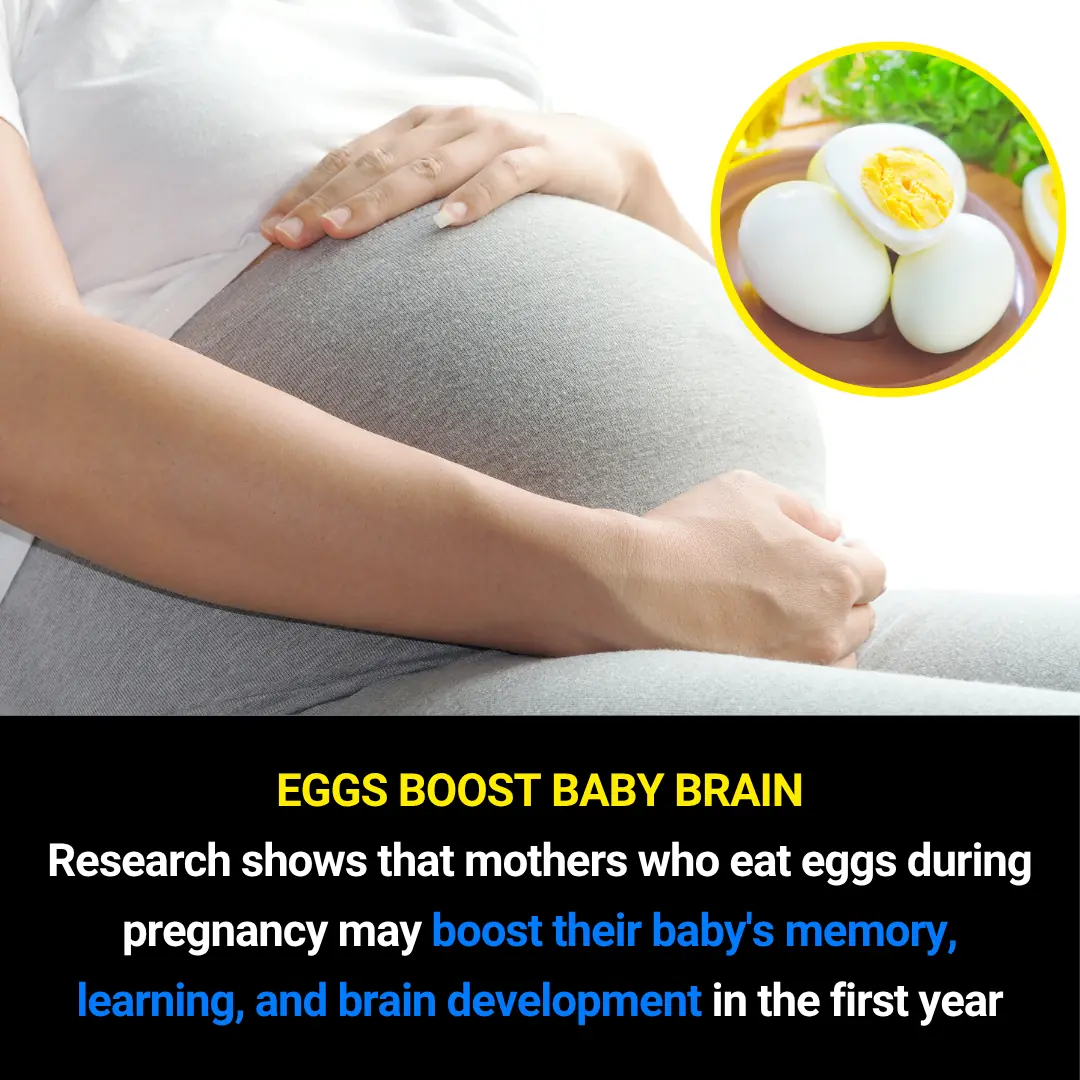
Eating Eggs Weekly May Reduce Alzheimer’s Risk by 47%: What New Research Reveals
Eating Eggs Weekly May Reduce Alzheimer’s Risk by 47%: What New Research Reveals
Emerging scientific research continues to highlight how everyday nutrition can play a crucial role in long-term cognitive health. A recent study has found that eating more than one egg per week may reduce the risk of Alzheimer’s disease by an impressive 47%. This discovery has sparked significant interest among nutrition experts, as eggs are widely recognized as a nutrient-dense food that supports overall brain function.
Eggs provide a powerful combination of choline, lutein, vitamin B12, vitamin D, high-quality protein, and essential antioxidants — all of which contribute to cognitive performance and neurological resilience. With Alzheimer’s disease affecting millions worldwide, understanding how simple dietary choices can influence brain health is more important than ever.

Choline: A Key Nutrient for Memory and Neural Communication
Among the nutrients found in eggs, choline stands out as one of the most essential for brain health. Choline is required to produce acetylcholine, a neurotransmitter critical for memory formation, learning, and communication between nerve cells.
According to the National Institutes of Health (NIH), adequate choline intake is strongly linked to healthy cognitive development and long-term neurological function. Research from Harvard T.H. Chan School of Public Health also emphasizes choline’s importance in maintaining brain structure and supporting cognitive performance across the lifespan.
The new study suggests that the choline found in even modest egg consumption — more than one egg per week — may contribute to improved cognitive stability and reduced risk of neurodegenerative decline. These findings support existing scientific literature showing that higher choline intake correlates with better memory and reduced brain atrophy.
Lutein and Vitamin B12: Protective Agents for Brain Cells
In addition to choline, eggs contain lutein, a powerful antioxidant typically associated with eye health but increasingly recognized for its cognitive benefits. Studies published in the Nutrients journal indicate that lutein helps reduce neural inflammation and supports faster information processing.
Eggs also provide vitamin B12, a nutrient highlighted by the Alzheimer’s Association for its essential role in maintaining a healthy nervous system. Deficiency in B12 has been linked to memory impairment and accelerated cognitive decline. The presence of vitamin D and omega-3 fatty acids in eggs adds further neuroprotective value, helping support brain cell function and overall mental clarity.
A Simple Dietary Habit With Long-Term Benefits
The findings of this new research suggest that incorporating eggs into weekly meals can be an affordable, accessible, and effective strategy for promoting long-term brain health. Although eggs are not a “cure” for Alzheimer’s, they represent an important nutritional component in a brain-supportive diet.
Health experts from Mayo Clinic underscore that optimal cognitive protection comes from a combination of factors — including nutrient-dense foods, regular physical activity, quality sleep, and mentally stimulating activities like reading or learning new skills. Adding eggs to a balanced diet fits naturally into this evidence-based approach to delaying cognitive decline.
Conclusion: Small Food Choices Can Create Big Benefits for the Brain
For individuals looking to protect memory, enhance cognitive performance, and reduce the risk of neurodegenerative disease, this new research offers an encouraging and practical insight: eating eggs regularly may significantly support long-term brain health.
With their rich concentration of choline, lutein, and essential vitamins, eggs provide a simple yet powerful way to strengthen neurological resilience. This study highlights an important truth — even small dietary habits can lead to meaningful improvements in overall brain function and long-term cognitive well-being.
News in the same category


The #1 reason to drink lemon water daily (and the mistakes that ruin it)

Maintain Your Thyroid in Top Condition with This Juice

Eggs in Pregnancy: How They Can Supercharge Your Baby’s Brain Development

Scientists Achieve Breakthrough in Reversing Human Skin Cell Aging by 30 Years: A New Era for Anti-Aging and Regenerative Medicine

Signs of pancreatic cancer you should never ignore

Top 3 Foods to Prevent Leg Cramps in Seniors: Strengthen Your Legs Naturally!

5 Herbs Your Liver Wished You’d Start Eating More Often (Or At Least Try!)

Top 10 foods that unclog arteries naturally and prevent heart attack

Top 10 Uric Acid Foods To Avoid If You Have Gout

The natural ingredient that helps you sleep through the night and boosts fat burning

Cancer Dies When You Start Eating These 8 Foods. Time To Start Eating Them

Your Feet Are A ‘Blood Sugar Meter’ – Beware Of Diabetes If You Frequently Experience These 12 Symptoms

What are the symptoms of diabetes?

Shoulder Pain from Sleeping: Causes, Solutions and More

6 Trigger Foods That Cause Agonizing Pain If You Have Neuropathy

Early Signs of Kidney Disease & How to Protect Your Kidneys

A Gentle Drink for Circulation, Balance, and Heart Wellness
News Post

What Your Nails Reveal About Your Health: Hidden Signs You Shouldn’t Ignore

Apple and Issey Miyake Redefine Tech Fashion With the $230 iPhone Pocket

A Simple Black Blade That Saves Birds: The Surprising Wind Turbine Breakthrough

A Silent Threat: How Aortic Atherosclerosis Develops and How You Can Protect Yourself

6 Groups of People Who Should Avoid Eating Duck Meat — No Matter How Much They Crave It

The #1 reason to drink lemon water daily (and the mistakes that ruin it)

3 Types of Coffee Proven to Boost Longevity and Lower the Risk of Heart Disease and Stroke

4 Foods You Shouldn’t Eat With Tofu

Firefighters Want Everyone To Know What They Should Never Plug Into A Power Strip

Uncovering the Viral Trigger Behind Lupus: Scientists Reveal a Surprising Link

A Quiet Hero: The 24-Year-Old Saving Over 1,400 Animals from Euthanasia

Princess Beatrice’s ‘fears’ for dad Andrew as Sarah Ferguson ‘plans to find new love’

New Study Shows Removing Processed Foods Can Reduce ADHD Symptoms by 53%

Kenyan Impostor Outsmarts Courts: Fake Lawyer Wins 26 Cases Before Shocking Unmasking

Why You Keep Waking Up at Night

What Are Tonsil Stones

Skin Brightening Tomato Facial | Get Fair, Glowing, & Spotless Skin Permanently

Cloves and Onion Peel for Grey Hair: Natural Solutions to Darken and Nourish Hair

Erase Wrinkles With This Banana Face Pack
